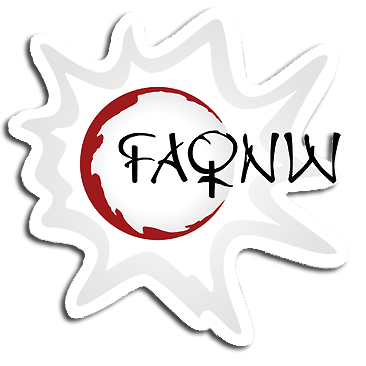Once the arguments have been formulated and are supported by stories or statistics, they need to be presented to those who make decisions about the issues that need to be addressed. In the communities and off reserve, there are different bodies that manage matters at the POLITICAL LEVEL, for the ADMINISTRATION OF HEALTH AND SOCIAL SERVICES and at the JUDICIAL LEVEL.
"One day, Deer had the idea to join Little Turtle. Without really knowing why, this idea became deeply embedded in him. It obsessed him constantly. Unable to get rid of it, he called Rainbow and begged him to help him go to Heaven. - Why would you want to go to the Sky, Deer? On what authority do you ask me such a thing? asked Rainbow. - I need to see Little Turtle," he replied simply. Rainbow was not at all convinced of Deer's motives. He wanted to consult Hi'non, the Thunder, before making a decision.”
On the POLITICAL LEVEL
The mission of may differ slightly from community to community, but essentially, Band Councils manage the affairs of the community. They defend the rights and interests of their community members. Their role is also to establish agreements with the different ministries regarding the social services required by their population.
Band Councils may also meet as Tribal Councils, usually along regional, ethnic or linguistic lines. Communities that do not belong to a Tribal Council are called independent. The authority that communities delegate to their Tribal Council varies from Nation to Nation. In Quebec, five Nations are governed regionally by Tribal Councils: Anishinabeg, Atikamekw, Mi'gmaq, Innu and Abenaki. The Eeyou, although governed by the James Bay Agreement, have created an equivalent body, the Grand Council of the Crees. The following is a list of the various Tribal Councils in Quebec:
Native Friendship Centre are urban service hubs, a living environment and a cultural anchor for urban Indigenous people. They advocate for the rights and interests of Indigenous people and work to foster a better understanding of the issues, challenges and problems of urban Indigenous people. They provide services in education, health and social services, and community and cultural development. There are 10 Native Friendship Centres across Quebec:
ADMINISTRATIVE LEVEL (health and social services)
Within the communities, the development of programs and the organization of health and social services for the communities are the responsibility of the federal government or of the Indigenous authorities when they are signatories to agreements assigning them this responsibility. In the absence of such an agreement, the federal government provides the services and Health Canada supervises the staff in place.
For Indigenous people outside of the communities, it is the Direction des affaires autochtones of the Ministère de la Santé et des Services sociaux du Québec that coordinates the files related to Indigenous peoples.
There are also many non-governmental resources that support and assist individuals and communities. For example, here is a guide to family violence prevention resources for First Nations in Quebec (bilingual):
The First Nations of Quebec and Labrador Health and Social Services Commission was created by the Assembly of First Nations Quebec-Labrador to respond to the health and social services needs of Indigenous communities in Quebec. The FNQLHSSC ensures that Indigenous communities in Quebec exercise their inherent rights so that these communities can control the delivery of health and social services to their members.
If the services are not well adapted or if you feel that you have not been well taken care of by the administrative or caregiving staff, it is possible to file a complaint with the Quebec public agencies, first with the service quality and complaints commissioner of the institution concerned. You can also contact the Quebec Ombudsman:
It is also possible to file a complaint directly with certain departments:
Ministère de la Justice
Ministère de la Sécurité publique (police)
Ministère de la Santé et des Services sociaux
To build trust with Indigenous users, organizations can implement cultural safety measures. Cultural safety aims to create safe and welcoming environments for the Indigenous population within, for example, the health and school systems.
For more information on cultural safety, see the presentation La sécurisation culturelle : moteur de changement social
On the JUDICIAL LEVEL
Since 1998, the creation of community justice programs, the justice committees, has been possible within the communities. These justice committees have jurisdiction over a variety of criminal and civil matters. Generally, they focus on reparation and restoration, and promote understanding and respect for the laws, values and traditions of the community.
In 2017, Quebec had 26 justice committees working with seven Nations:
Manawan, Opitciwan (Comité de justice sociale d’Opitciwan) et Wemotaci (Projet de justice communautaire atikamekw – présentation PowerPoint)
Chisasibi, Eastmain, Mistissini, Nemaska, Oujé-Bougoumou, Waskaganish, Waswanipi, Wemindji and Whapmagoostui, (Community Justice Committee);
Aupaluk, Inukjuak, Kangiqsualujjuaq, Kangiqsujuaq, Kangirsuk, Kuujjuaq, Kuujjuarapik, Puvirnituq, Quaqtaq et Salluit (Makivik Justice Program)
YOUR TURN
Now that you know more about governance, your rights and responsibilities, the issues involved and who to talk to, it's time to put what you've learned into action. Go back to the topic you identified to answer the questions in Module 2. Write an email to your band council to find out what kinds of initiatives they are undertaking in the topic you have chosen.
There are also many other ways you can mobilize people around your issue. For example, you could present a petition to the Quebec National Assembly. This is an effective way to mobilize MNAs, ministers and the entire National Assembly, but also the general population, who might be interested in signing your petition. The National Assembly website allows you to view examples of petitions, and has a guide on how best to start a petition. Another way to participate in the work of the National Assembly and provide your input on an issue that is important to you is through public consultations or by commenting on a subject under study. Both of these ways allow you to ensure that your opinion and voice are heard on a particular issue and can be a very effective way to inform and educate the elected officials of the National Assembly.
The different forms of call and greeting for your correspondent can be found here: for the federal government or for the provincial government. You can refer to the sample letter and email on the following page.

